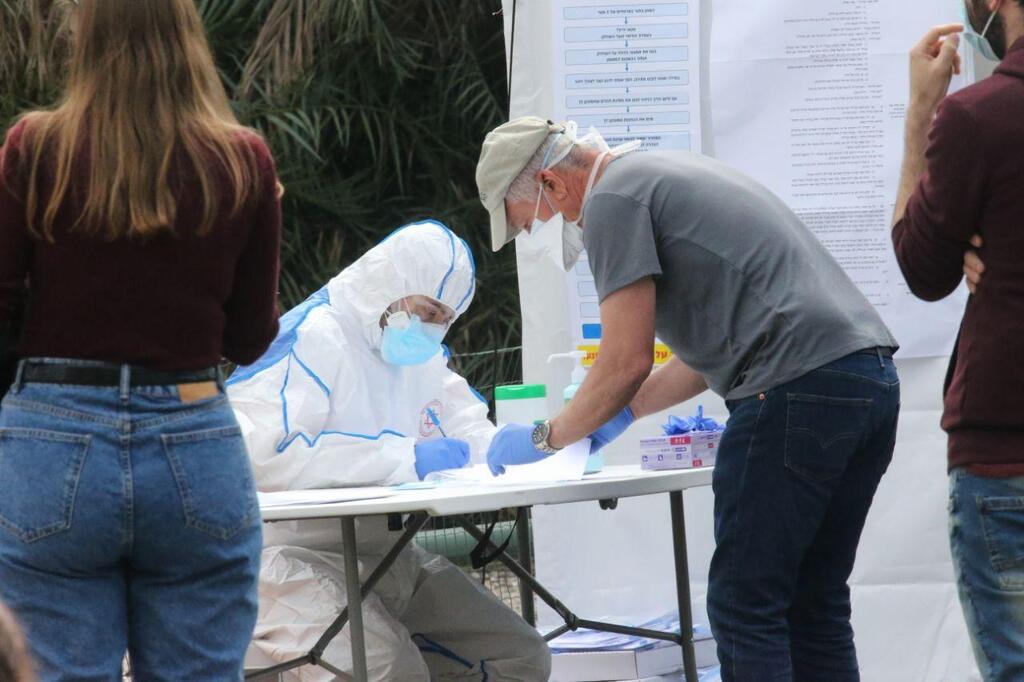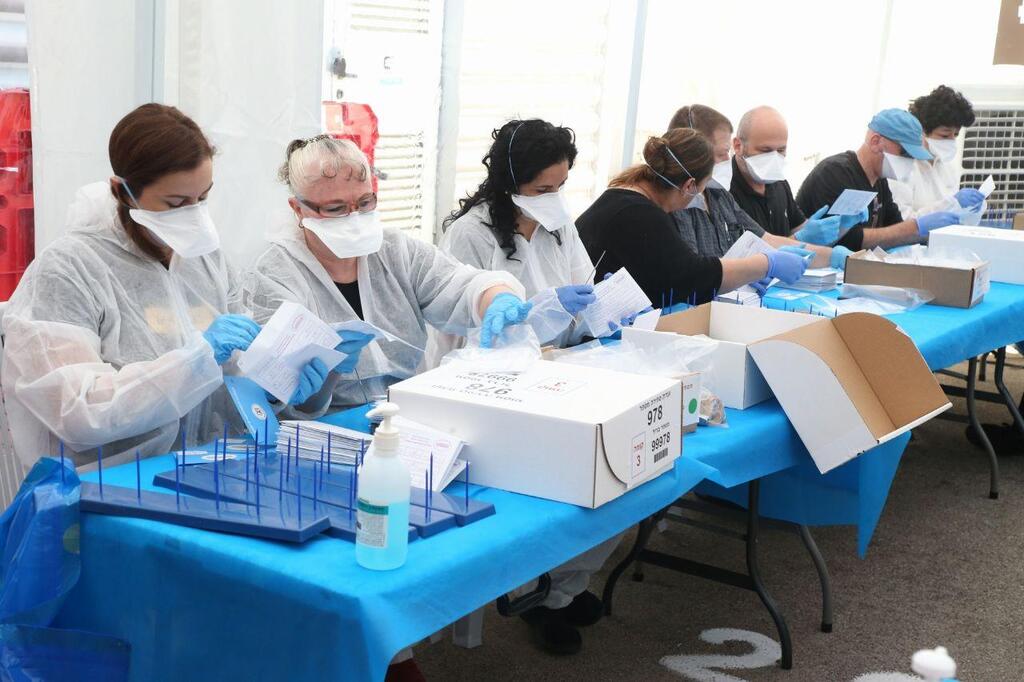Getting your Trinity Audio player ready...
With the Knesset on the verge of being dissolved, elections could cost Israel over NIS 3 billion.
A fourth election cycle in two years, would come amid an economic and health crisis, with over 900,000 unemployed, 80,000 businesses already closed and a budget deficit accounting for 13% of GDP.
2 View gallery


Israelis quarantined because of the coronavirus vote in special ballots in the March 2020 elections.
(Photo: Moti Kimchi)
This is an optimistic assessment given that much more polling stations and workers will be needed to minimize the number of voters arriving at each location due to the coronavirus pandemic. Separate polling stations are also planned to be opened at retirement homes and geriatric facilities.
If the Knesset does not dissolve itself, It will be automatically dissolved if a budget for 2021 is not passed by December 23 and snap elections would then be set to take place in March.
Without a budget not passed, the Knesset will have to approve special legislation to fund the election.
On Thursday, the Finance Ministry released a special memorandum to prepare such a bill .
Since election day in Israel is a public holiday, it is estimated that the public sector will lose up to NIS 700 million, with the private sector losing NIS 1.4 billion.
The direct lose to the state budget, regardless of the GDP loss because of Election Day being a public holiday, stands at about NIS 620 million.
NIS 350 million will be allotted to the Central Election Committee - which oversees the whole process from polling stations, to printing hundreds of millions of ballots, pay for workers and over 3,000 inspectors.
NIS 270 million will be given to fund the campaigns for the various political parties. This estimate does not include loans the state gives to new parties for their campaigns.
Because of coronavirus restrictions, there may also be a need for a two day election period to allow social distancing at the ballot locations.
First published: 12:02, 12.06.20


